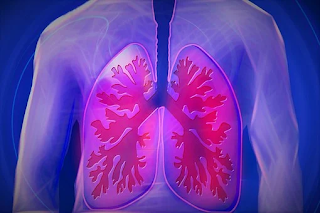616

Follow us on Medium!
Researchers at the Rutgers University and Genentech, US, have found that severe asthma patients do not respond to common medication treatment and have pointed to a solution to fix this problem.
Image Credits: Pixabay
Asthma patients are often prescribed corticosteroid inhalers. These drugs are a common treatment as they reduce swelling and inflammation of the airways to prevent asthma attacks and reduce their severity. These inhalers are effective in patients with mild to moderate asthma but people having severe asthma do not respond well to them.
The research team investigated this problem and found the mechanism that seems to block the action of the drugs. For the study, they collected the samples of bronchial airway epithelial cells (BAECs) exposed to inhaled corticosteroids from three different groups: patients with severe asthma, patients with moderate asthma and healthy people. Then, they performed a genetic analysis to find which genes get activated in the cells in response to the drugs.
The researchers discovered that two growth factors are secreted due to the action of corticosteroid drugs in cells lining the airways. Growth factors are naturally occurring substances that stimulate cell proliferation. These growth factors were Fibroblast Growth Factor (FGF) and Granulocytic Colony-Forming Growth Factor (G-CSF). They help to control cellular processes and perform various important functions including cell division, wound healing, etc. But in the case of severe asthma, they hinder the action of the drugs.
“We believe this response explains why patients with severe asthma are unresponsive to such conventional therapy,” said Reynold Panettieri Jr., Professor of Medicine at Rutgers Robert Wood Johnson Medical School.
The study suggests that different cellular pathways get activated in patients with severe asthma, which results in the drugs failing to work. After identifying the problem, the researchers worked on a solution that could restore the function of the drugs. For this, they conducted tests on mice. In these tests, the researchers blocked the growth factors before giving corticosteroids and found that the drugs worked once again by reversing inflammation and halting tissue scarring.
“Our study has uncovered a potential mechanism to explain why patients with severe asthma are unresponsive to conventional therapy,” said Panettieri. “If we could uncover new approaches to treatment that directly affect that mechanism, we may be able to restore a sensitivity to the steroid and improve outcomes.”
The detailed study has been published in the journal Science Translational Medicine.
Follow us on Medium!

